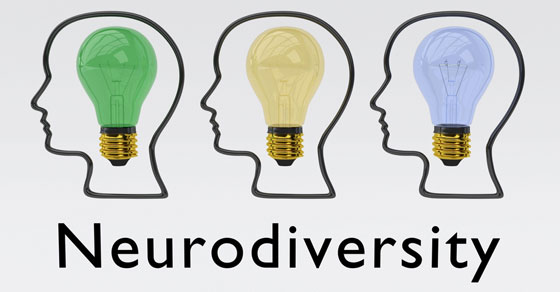
As many employers look to implement and improve diversity, equity and inclusion (DEI) programs, their focus tends to be on well-known factors such as race, ethnicity and gender identity. These are no doubt important categories, but there are other often-overlooked ones to consider as well.
Take, for example, neurodiversity. People who are neurodivergent use their brains differently from what’s considered the norm. Many of them must manage conditions such as dyslexia, autism spectrum disorder (ASD) and attention deficit hyperactivity disorder (ADHD).
Addressing their distinctive needs in hiring and employment can not only boost DEI efforts, but also give an organization an edge in today’s competitive labor market.
Issues in hiring
Traditional approaches to hiring can present substantial roadblocks to neurodivergent people. Just a few examples include:
- Someone with dyslexia may struggle with a densely worded or questionably designed job application,
- A person with ASD may have trouble maintaining eye contact and responding to commonly accepted social cues during an interview, and
- Someone with ADHD could appear restless or inattentive when interacting with hiring staff.
As a result, many neurodivergent people end up un- or underemployed. Yet given an equitable hiring process, as well as customized onboarding and training, they can bring fresh perspectives and considerable skills to the workplace.
How might your organization adjust its hiring process to better suit neurodivergent applicants? To begin with, give high priority to an initial skills-based assessment of candidates. Many employers still put too much emphasis on an interview-centric hiring process in which applicants need to “talk a good game” and essentially sell themselves.
In addition, be sure your hiring materials — such as job applications and descriptions — use clear, plain language. And, of course, train supervisors and others who are involved in hiring about the distinctive traits and needs of neurodivergent people.
Performance management
If you hire someone who’s neurodivergent, you’ll likely encounter differences in managing that person’s performance compared to managing non-neurodivergent employees.
Indeed, this is apparently an underrecognized shortcoming of many employers. According to a survey of 900 workers conducted by software company Alludo this year, 51% of those who identify as neurodivergent said they wanted to quit their jobs, or they’ve already resigned, because they didn’t feel valued or supported.
Although many neurodivergent people don’t disclose their conditions, supervisors can still look for signs and, rather than respond in a punitive manner, seek out reasonable accommodations. Generally, neurodivergent people work better in a quiet working environment with minimal distractions. So, more private workspaces and flexible arrangements that include working remotely from home can be a good fit. Also, beware of forcing expectations to multitask on neurodivergent employees. Rather, encourage and reward appropriate and productive prioritization of tasks.
Above all, employers in general and supervisors specifically should determine how to communicate with each neurodivergent employee most effectively. Be as flexible and open-minded as possible, listening to the person involved and using whatever technology works best. Many employers have found that partnering a workplace mentor with a neurodivergent person facilitates communication and improves the employee’s comfort level.
Advance the conversation
The competition for top talent in many industries is intense. More than likely, your organization can’t afford to pass on good candidates or lose skilled employees just because those individuals may think differently or have special needs. If you’re striving to improve your DEI efforts, be sure to include neurodiversity in the conversation.
© 2023
TopLine Content Marketing Team

